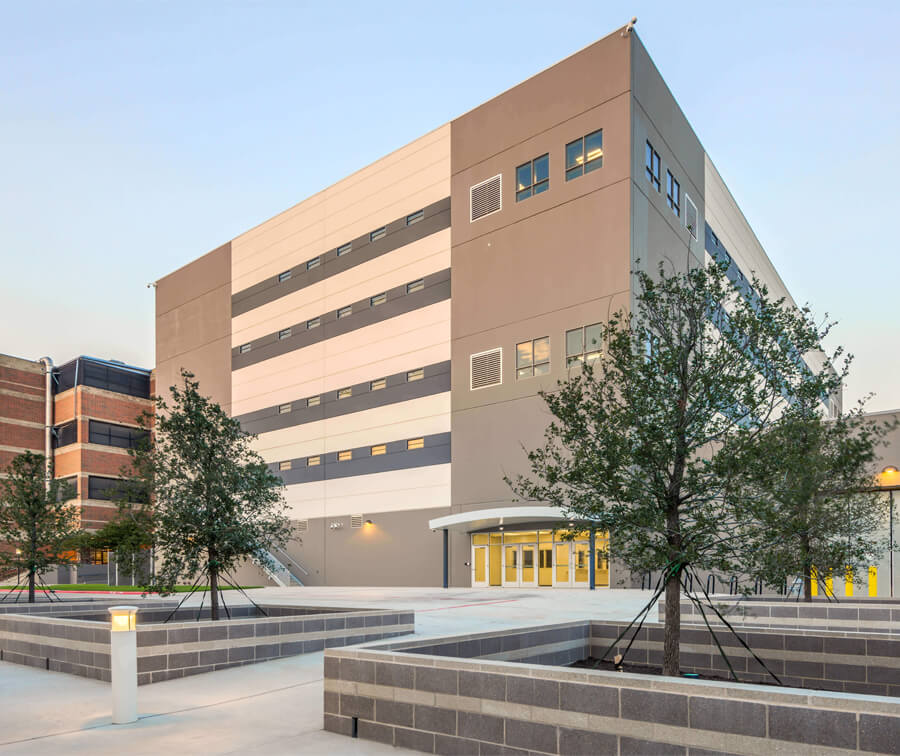
Seeing the Future – Sort Of
Mario Smith has the fun task of seeing into the future—sort of. He is Butler-Cohen’s newest all-star estimator extraordinaire. We recently sat down with Mario (virtually) to discuss his background and the skills it takes to succeed in his role. Preview: he has a great eye for detail and probably aced all the spatial-reasoning questions on his SAT’s. Read on for super Mario’s (sorry) hot takes on all things construction estimating. [Note: Interview lightly edited/condensed for clarity.]
BC: How did you become interested in a career in construction?
MS: I come from a family of engineers, so a career in construction was always something I was aware of. My aunts and uncles and cousins were all engineers. My dad was a horticulturist, so he’s the black sheep! Civil, mechanical, fire protection–pretty much the whole gambit of construction related to engineering, someone in my family does it. They talked about it all the time so it’s something I knew I wanted to do.
BC: What attracted you to estimating in particular?
MS: At the University of Houston, I was a Structural Engineering major, and I was project manager over our senior project. I really fell in love with running a project–the estimating and project management side of it. That’s what made me want to pursue project management, estimating, and all the front-end stuff. Engineering is in the design phase; you don’t really see anything that you’re actually doing. Once you get into pre-construction and production you can see what your numbers are actually building.
BC: What makes someone a good estimator?
MS: You must be able to pick up on details and patterns within plans that high-level people won’t see when they are skimming through plans. Maybe it’s a mental thing but being able to build a structure in your mind is pivotal. When you look at a wall, you’ve gotta know the wall is not just sheet rock. You’ve gotta know that there’s studs inside, insulation, tape, paint…all that stuff. So, you’ve gotta be able to construct each component and see how those components construct a building. Estimators should be known for being detail oriented and being able to understand the plans even better than a superintendent or an owner who drew the plans.
Estimators also must build good relationships with subcontractors. They are the life blood of every project. If they don’t turn in good numbers to you, you will never win a project.
Estimators have the job of winning the project while protecting the company’s profit margin. If an estimate is bad, the project starts in the hole and generally has issues. It can be an uphill battle to come out ahead. If an estimate is good, the company will make their fee and have the opportunity to deliver a quality product to the owners that makes them happy, subs have a good experience working for us, and we have a good project to add to our resume!
BC: Do you ever get bids that are obviously way too low or way too high?
MS: Definitely. When it’s low you start worrying about it. The other day we had 4 subcontractors turn in their estimates for a large project. One was really high–almost double the cost of the middle two, and one was way too low–half the cost of the middle two. So, we threw the high one out but obviously the low bidder missed something big. Turns out he forgot to factor in the labor costs in his bid.
Now that is an extreme example. More commonly it’s little things here and there that can add up later on. I’ve got to be able to read two proposals and determine if two subcontractors are saying the same thing, even if they’re using different words. And of course, I’ve got to determine if any bids are leaving out an important item, like in the example above.
BC: Where are you today?
MS: I’m in West Texas, on a site visit with one of our industrial clients. I like that about working at BC. I’m being exposed to a variety of industries that are new to me, like the work we do on industrial sites. This is a highly regulatory environment, and we have to take into account all the owner’s regulations, and I’ve got to account for the cost of that in the estimates. It’s definitely a challenge I’ve enjoyed learning at Butler-Cohen.
BC: The site visits must help you build the building in your head. Going out there to see it helps with the visualization.
MS: Definitely. This one is a remodel, and there are some walls that have to be demoed, and there are some locations of things that we have to verify—sometimes the drawings don’t show everything you would want. Going out to the site we realized that getting to a particular room is gonna be pretty hard. We spent a good 10 minutes trying to locate the door to get into a room so that the electrician can do his work.
BC: Site visits are pretty important to mitigate the risk of a bad estimate.
MS: Sometimes we save pennies on the dollar, but when you have savings at the beginning of the project, that can save you more money later down the line. It’s my job and my responsibility to eliminate as much of the unknown as possible.
After earning his degree in Structural Engineering from the University of Houston, Mario Smith joined the construction industry and now has over half a decade of experience. Outside of working hours, he enjoys hanging out with his friends, volunteering at his church, and spending time with his family. And he looks forward to the day that he will no longer need to wear one of his many Butler-Cohen-branded masks around town.
